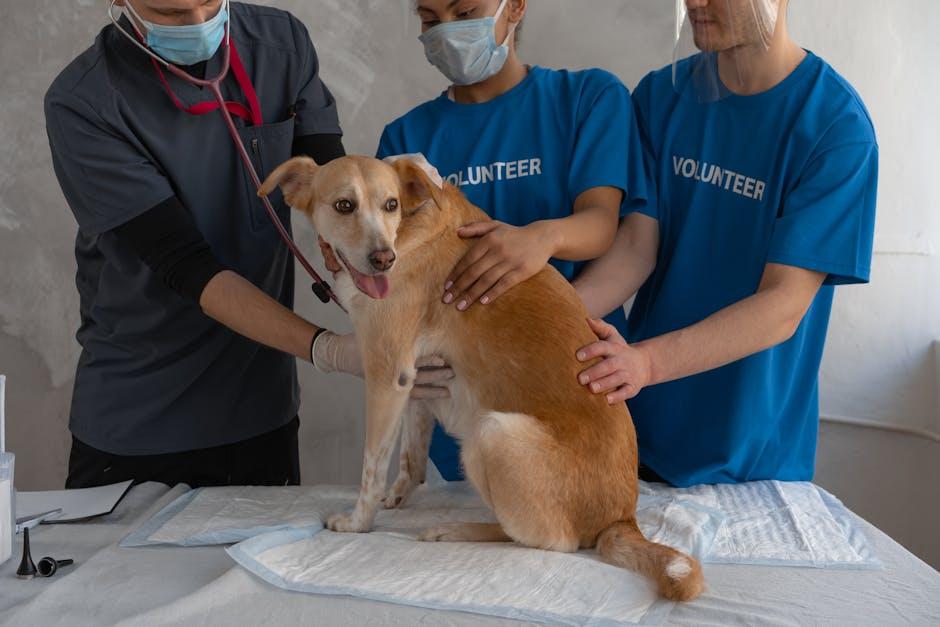Welcoming a puppy into your home is an exciting and joyful experience, filled with wagging tails, playful antics, and boundless energy. As a first-time owner, you’re embarking on a rewarding journey of companionship and unconditional love. However, with this new adventure comes the responsibility of ensuring your furry friend grows up healthy and happy. Navigating the world of puppy care can seem daunting, but fear not—we’re here to guide you every step of the way. In this article, we’ll share essential health advice tailored specifically for new puppy parents, covering everything from nutrition and vaccinations to exercise and grooming. With a warm heart and a little bit of knowledge, you can provide the best care for your adorable new family member, setting the foundation for a long and thriving life together.
Understanding Your Puppys Nutritional Needs for Optimal Growth
Ensuring your puppy receives the right nutrients is crucial for their development and long-term health. A balanced diet will support their immune system, bone growth, and energy levels. Here are some essential components to consider when planning your puppy’s meals:
- Protein: Vital for building and repairing tissues, proteins should make up a significant portion of your puppy’s diet. Look for high-quality sources like chicken, beef, or fish.
- Fats: These provide a concentrated source of energy and are necessary for brain development. Healthy fats from fish oils or flaxseed can also help keep their coat shiny.
- Carbohydrates: While not as crucial as proteins and fats, carbohydrates provide a quick energy boost. Opt for whole grains and vegetables as they offer additional fiber and nutrients.
- Vitamins and Minerals: Essential for various bodily functions, ensure your puppy’s diet includes a wide range of vitamins and minerals. A good puppy food should be fortified with these to meet their growing needs.
It’s also important to feed your puppy the right amount, adjusting portions as they grow. Regular vet check-ups can help tailor their diet to specific needs, ensuring they thrive during their formative months.

Creating a Safe and Stimulating Environment for Your New Furry Friend
Welcoming a new puppy into your home is a joyful experience, but it’s essential to ensure their environment is both safe and enriching. Start by puppy-proofing your home to prevent accidents and injuries. This includes securing electrical cords, removing small objects that could be swallowed, and using baby gates to restrict access to potentially dangerous areas. Choose non-toxic plants for your home and garden, as curious pups love to explore with their mouths.
Once safety is addressed, focus on creating a stimulating space that encourages growth and learning. Provide a variety of toys that cater to different play styles—such as chew toys, puzzle feeders, and plush toys. This not only keeps them entertained but also helps with teething and cognitive development. Consider setting up a cozy corner with a comfortable bed where your puppy can retreat to rest and feel secure. Regular interaction and playtime are crucial, so make time each day for bonding activities. Remember, a well-rounded environment will nurture a happy, healthy puppy.

Establishing a Consistent Veterinary Care Routine for Lifelong Health
Establishing a regular schedule with a trusted veterinarian is a cornerstone of ensuring your puppy’s health and happiness. Consistency in veterinary care means more than just routine check-ups; it’s about developing a partnership with your vet to tailor health plans specific to your puppy’s needs. Early health assessments can detect potential issues before they become significant, and timely vaccinations protect against preventable diseases.
- Schedule Regular Check-Ups: Monthly visits during the first few months, then bi-annually, help monitor growth and development.
- Vaccination and Deworming: Follow your vet’s schedule for vaccines and deworming to safeguard your puppy’s health.
- Parasite Prevention: Discuss flea, tick, and heartworm prevention options to keep your puppy pest-free.
- Dental Care: Incorporate teeth brushing and regular dental checks into your routine.
- Nutritional Guidance: Work with your vet to establish a balanced diet plan tailored to your puppy’s breed and size.
Consistency not only helps in keeping your puppy healthy but also builds a strong foundation for a lifelong relationship with your veterinarian. This partnership will be invaluable in making informed decisions about your puppy’s health and well-being.
















